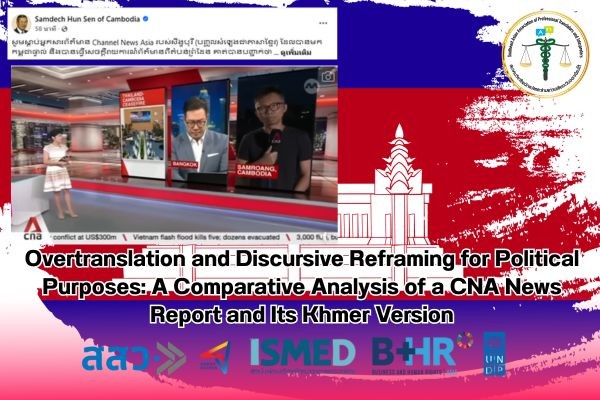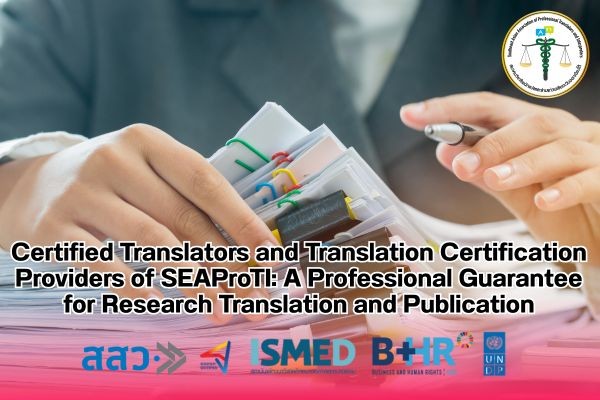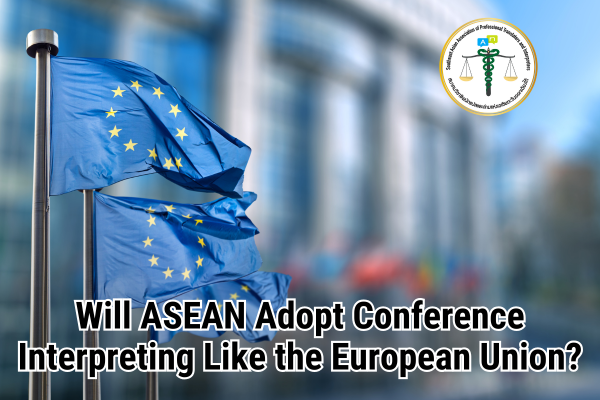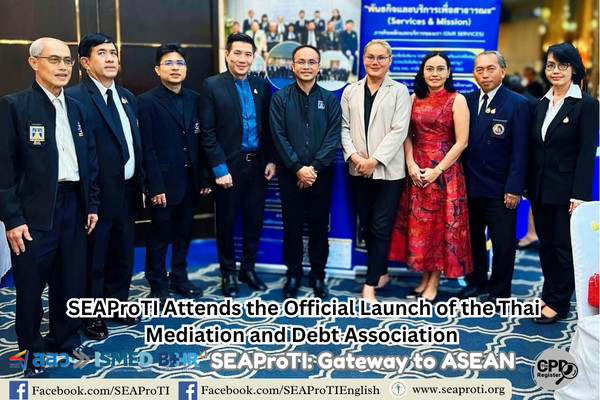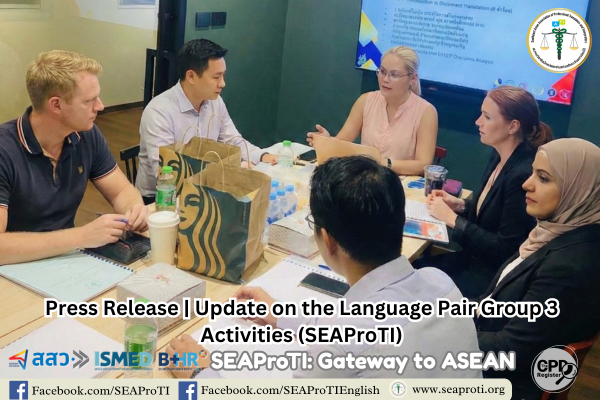Overtranslation and Discursive Reframing for Political Purposes:
A Comparative Analysis of a CNA News Report and Its Khmer Version
By Wanitcha Sumanat, President of the Southeast Asian Association of Professional Translators and Interpreters (SEAProTI)
30 July 2025, Bangkok- This article investigates the translation of a news segment from the English-language Channel News Asia (CNA) into Khmer, following the Thai-Cambodian border clash in late July 2025. Using a Critical Discourse Analysis (CDA) framework, it explores how word choice, structural shifts, and the addition of new content in the translation process reflect discursive manipulation to serve political interests. It argues that the Khmer version reconfigures the original message by transforming a journalistic report into a political affirmation, notably through the insertion of factual claims not found in the original text.
Introduction
News translation is not merely a linguistic transfer from one language to another; it is also a contested site of power, ideology, and narrative construction. Lexical and structural choices can subtly—or overtly—reshape meanings and political positions. This article demonstrates how the Khmer-language version of a CNA news report engages in “overtranslation,” reframing the original discourse to bolster Cambodia’s official stance, thereby transforming neutral reporting into assertive messaging.
Methodology
This study applies Norman Fairclough’s (1995) model of Critical Discourse Analysis (CDA), which examines texts across three levels:
- Textual Analysis – choice of words, grammar, and rhetorical structure
- Interpretation – production and reception context
- Explanation – socio-political function of the text
Findings
Reframing the Journalist’s Role
The original CNA report states:
- “Cambodia reacting to that by saying that is not the case.”
This presents the journalist as a neutral reporter relaying a claim.
In contrast, the Khmer version says:
- “សូមស្តាប់អ្នកសារព័ត៌មាន CNA … បានបញ្ជាក់ថា…”
Translated: “Please listen to the CNA reporter … who confirmed that…”
The word បញ្ជាក់ថា (“confirmed that”) elevates the journalist from a neutral observer to an authoritative witness or expert, thereby increasing the credibility of Cambodia’s denial.
Insertion of New Context Not Present in the Original
The CNA report does not mention a ceasefire agreement being signed in Malaysia, nor any specific date.
However, the Khmer version adds:
- “…បានព្រមព្រៀងគ្នានៅប្រទេសម៉ាឡេសុី កាលពីថ្ងៃទី ២៨ កក្កដា ឆ្នាំ២០២៥…”
“…which was agreed upon in Malaysia on 28 July 2025…”
This insertion creates a concrete factual framework that bolsters Cambodia’s narrative, despite being absent from the original report.
Shift in Tone: From Reporting to Rebuttal
The CNA script uses neutral verbs like “claims,” “reacting,” and “they say,” signaling journalistic impartiality.
The Khmer version opts for forceful expressions:
- បញ្ជាក់ថា (“confirmed that”)
- មិនបានល្មើស (“did not violate”)
- ទាត់ចោលការចោទប្រកាន់ (“completely rejected the allegations”)
This linguistic reframing converts a report into a defensive rhetorical strategy, asserting the innocence of Cambodia.
Discussion
Minor linguistic shifts during translation can substantially alter audience interpretation. In this case, the Khmer translation reassigns the journalist’s role, introduces new “facts,” and intensifies the tone to serve a state-aligned narrative.
Such practices align with the concept of “translation as discursive recontextualization” (Baker, 2006), where translation becomes a strategic act of ideological construction rather than neutral mediation.
While these modifications may not constitute “factual distortion,” they strategically reframe the discourse to bolster the image of the Cambodian government amidst international scrutiny.
Conclusion
Although the central message—Cambodia’s denial of Thai allegations—remains consistent across both versions, the Khmer translation introduces rhetorical and factual augmentations that reframe the journalist’s neutrality and reinforce state legitimacy.
This case demonstrates how news translation can function as a soft-power tool, particularly in contested political contexts. It also underscores the ethical imperative of distinguishing between journalistic translation and state-driven narrative construction.
References:
- Baker, M. (2006). Translation and Conflict: A Narrative Account. Routledge.
- Bassnett, S., & Lefevere, A. (1990). Translation, History and Culture. Pinter Publishers.
- Fairclough, N. (1995). Critical Discourse Analysis: The Critical Study of Language. Longman.
- Hatim, B., & Mason, I. (1997). The Translator as Communicator. Routledge.
SEAProTI’s certified translators, translation certification providers, and certified interpreters:
The Southeast Asian Association of Professional Translators and Interpreters (SEAProTI) has officially announced the criteria and qualifications for individuals to register as “Certified Translators,” “Translation Certification Providers,” and “Certified Interpreters” under the association’s regulations. These guidelines are detailed in Sections 9 and 10 of the Royal Thai Government Gazette, issued by the Secretariat of the Cabinet under the Office of the Prime Minister of the Kingdom of Thailand, dated July 25, 2024, Volume 141, Part 66 Ng, Page 100. The Royal Thai Government Gazette
การแปลเกินและการจัดวาทกรรมเพื่อวัตถุประสงค์ทางการเมือง:
กรณีศึกษาเปรียบเทียบข่าว Channel News Asia กับฉบับภาษาเขมร
โดย วณิชชา สุมานัส นายกสมาคมวิชาชีพนักแปลและล่ามแห่งเอเชียตะวันออกเฉียงใต้ (SEAProTI)
30 กรกฎาคม 2568, กรุงเทพมหานคร – บทความนี้ศึกษาการแปลข่าวจากภาษาอังกฤษของสำนักข่าว Channel News Asia (CNA) ไปสู่ฉบับภาษาเขมรที่เผยแพร่ภายหลังเหตุปะทะบริเวณชายแดนไทย–กัมพูชาเมื่อปลายเดือนกรกฎาคม พ.ศ. 2568 โดยใช้กรอบแนวคิดวาทกรรมเชิงวิพากษ์ (Critical Discourse Analysis – CDA) เพื่อวิเคราะห์การเลือกคำ การปรับโครงสร้าง และการแทรกเนื้อหาในกระบวนการแปลซึ่งสะท้อนให้เห็นถึงการสร้างภาพจำและวาทกรรมทางการเมืองที่แตกต่างจากต้นฉบับอย่างมีนัยสำคัญ โดยเฉพาะการเปลี่ยนจาก “การรายงานข่าว” เป็น “การยืนยันข้อเท็จจริง” และการเติมบริบทที่ไม่ปรากฏในต้นฉบับ
บทนำ
การแปลข่าวเป็นกระบวนการที่ไม่เพียงถ่ายโอนข้อมูลจากภาษาหนึ่งสู่อีกภาษาหนึ่งเท่านั้น แต่ยังเป็นพื้นที่ของการต่อรองทางอำนาจ การเลือกคำหรือการปรับสำนวนสามารถนำไปสู่การเปลี่ยนแปลงน้ำหนักของความหมาย ตลอดจนเจตนาทางการเมืองของข่าวนั้นๆ บทความนี้เสนอให้เห็นว่า ฉบับข่าวภาษาเขมรที่อ้างว่าแปลจาก CNA ได้มีการ “แปลเกิน” (overtranslation) และจัดวาทกรรมใหม่เพื่อรับใช้การสร้างภาพลักษณ์ของรัฐกัมพูชา
ระเบียบวิธีวิจัย
การศึกษานี้ใช้วิธี Critical Discourse Analysis ตามแนวทางของ Fairclough (1995) โดยแบ่งการวิเคราะห์ออกเป็นสามระดับ:
- วิเคราะห์ถ้อยคำ (Textual Analysis): การเลือกคำ/โครงสร้างทางไวยากรณ์
- การตีความ (Interpretation): การวางข่าวในบริบทของผู้ส่งสารและผู้รับสาร
- การอธิบาย (Explanation): ว่าข้อความนั้นรับใช้โครงสร้างอำนาจหรือวาทกรรมใด
ผลการวิเคราะห์
การเลือกคำที่เปลี่ยนบทบาทของผู้สื่อข่าว
ต้นฉบับ CNA ใช้คำว่า:
- “Cambodia reacting to that by saying that is not the case.”
ซึ่งแสดงถึงบทบาทของผู้สื่อข่าวในฐานะ ผู้รายงาน (reporter) เท่านั้น ไม่มีการยืนยันข้อเท็จจริงใดๆ
ขณะที่ในฉบับเขมรใช้ว่า:
- “សូមស្តាប់អ្នកសារព័ត៌មាន CNA … បានបញ្ជាក់ថា…”
แปลว่า “โปรดรับฟังผู้สื่อข่าว CNA … ที่ยืนยันว่า…” ซึ่งเปลี่ยนบทบาทของผู้รายงานข่าวเป็น พยานหรือผู้ยืนยันความจริง (witness/expert) โดยชัดเจน นี่คือกลวิธีทางวาทกรรมเพื่อสร้างความน่าเชื่อถือของฝ่ายกัมพูชา
การเติมข้อมูลที่ไม่ปรากฏในต้นฉบับ
ต้นฉบับ CNA ไม่ได้กล่าวถึงสถานที่หรือวันที่ของข้อตกลงหยุดยิง แต่ฉบับเขมรแทรกว่า:
- “…បានព្រមព្រៀងគ្នានៅប្រទេសម៉ាឡេសុី កាលពីថ្ងៃទី ២៨ កក្កដា ឆ្នាំ២០២៥”
(“ได้ตกลงกันที่ประเทศมาเลเซีย เมื่อวันที่ 28 กรกฎาคม 2025”)
ซึ่งเป็นการเพิ่ม “บริบทที่เฉพาะเจาะจง” ที่ ไม่ปรากฏในต้นฉบับ แต่มีนัยช่วยให้ข่าวสนับสนุนการกล่าวอ้างของฝ่ายกัมพูชาได้ชัดเจนขึ้น
การเปลี่ยนน้ำเสียงจากกลางเป็นการโต้กลับ
ต้นฉบับ CNA ใช้คำว่า “they say”, “claims”, “reacting” เพื่อรักษาความเป็นกลางของผู้สื่อข่าว
แต่ฉบับแปลเขมรใช้คำว่า:
- “បញ្ជាក់ថា” (ยืนยันว่า)
- “មិនបានល្មើស” (ไม่ได้กระทำผิด)
- “ទាត់ចោលការចោទប្រកាន់” (ปฏิเสธอย่างสิ้นเชิง)
คำเหล่านี้ล้วนเป็นวาทกรรมที่แสดง “การโต้กลับ” และเน้นย้ำ “ความบริสุทธิ์” ซึ่งแสดงให้เห็นว่าฉบับแปลเขมรถูกจัดวางให้เป็นเครื่องมือประชาสัมพันธ์เชิงรัฐ (state-aligned discourse)
บทอภิปราย
การเปลี่ยนแปลงเล็กน้อยในระดับคำและโครงสร้างประโยคในการแปลสามารถส่งผลต่อความเข้าใจของผู้รับสารโดยรวม การที่ฉบับเขมรเปลี่ยน น้ำเสียงของผู้สื่อข่าว และแทรก ข้อมูลใหม่ คือการนำเสนอข่าวที่ไม่ใช่เพื่อรายงานข้อเท็จจริงเท่านั้น แต่ยังใช้เพื่อเสริมความชอบธรรมทางการเมืองของรัฐบาลกัมพูชาในสถานการณ์ระหว่างประเทศ
ในเชิงทฤษฎี การแปลลักษณะนี้สามารถอธิบายได้ว่าเป็น “การจัดวาทกรรมใหม่ผ่านการแปล” (translation as recontextualization of discourse) ซึ่งไม่ใช่ความผิดทางเทคนิคของนักแปล แต่เป็นการกระทำทางอุดมการณ์ (ideological act)
บทสรุป
แม้เนื้อหาหลักของข่าวภาษาอังกฤษและฉบับเขมรจะไม่ขัดแย้งกันโดยตรง แต่การเปลี่ยนบทบาทของผู้สื่อข่าวจากผู้รายงานเป็นผู้ยืนยัน การแทรกข้อมูลที่ไม่ปรากฏในต้นฉบับ และการปรับโทนเสียงให้โต้กลับและเข้าข้างรัฐ เป็นตัวอย่างชัดเจนของการแปลที่แฝงเจตนาทางการเมืองและควรได้รับการวิพากษ์ในเชิงวาทกรรมและจริยธรรมการแปล
เอกสารอ้างอิง:
- Fairclough, N. (1995). Critical Discourse Analysis: The Critical Study of Language. London: Longman.
- Baker, M. (2006). Translation and Conflict: A Narrative Account. Routledge.
- Hatim, B., & Mason, I. (1997). The Translator as Communicator. Routledge.
- Bassnett, S., & Lefevere, A. (1990). Translation, History and Culture. Pinter Publishers.
เกี่ยวกับนักแปลรับรอง ผู้รับรองการแปล และล่ามรับรองของสมาคมวิชาชีพนักแปลและล่ามแห่งเอเชียตะวันออกเฉียงใต้
สมาคมวิชาชีพนักแปลและล่ามแห่งเอเชียตะวันออกเฉียงใต้ (SEAProTI) ได้ประกาศหลักเกณฑ์และคุณสมบัติผู้ที่ขึ้นทะเบียนเป็น “นักแปลรับรอง (Certified Translators) และผู้รับรองการแปล (Translation Certification Providers) และล่ามรับรอง (Certified Interpreters)” ของสมาคม หมวดที่ 9 และหมวดที่ 10 ในราชกิจจานุเบกษา ของสำนักเลขาธิการคณะรัฐมนตรี ในสำนักนายกรัฐมนตรี แห่งราชอาณาจักรไทย ลงวันที่ 25 ก.ค. 2567 เล่มที่ 141 ตอนที่ 66 ง หน้า 100 อ่านฉบับเต็มได้ที่: นักแปลรับรอง ผู้รับรองการแปล และล่ามรับรอง


